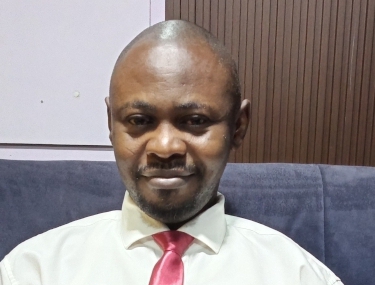
Pius Nsabe
Opening Edition: When Everyday Life Becomes a Public Health Story
On a humid Saturday morning at Ojota bus stop in Lagos, a commercial bus conductor slumped briefly against his vehicle, clutching his chest before forcing a smile and shouting for passengers again. Most people brushed past him — Lagos moves too fast for pauses — yet I couldn’t ignore the truth in his tired eyes. How many Nigerians are one heartbeat away from collapse, yet keep pushing because survival has no pause button?
Hundreds of kilometres away in Ibadan, the story was different but equally urgent. Along a row of market stalls in Bodija, waste piled up on the streets, black water seeping into potholes. Children darted barefoot through the mess, chasing a stray ball, while their parents shouted over the roar of passing motorbikes. The smell of rotting food mixed with exhaust fumes hung in the air. One boy paused, coughing violently, wiping mucus from his nose, unnoticed by everyone. Here too, the invisible burden of environmental neglect silently shaped health, one child, one household, one community at a time.
That is where this weekly journey begins.
Public health is not an abstract textbook idea. It is the story of real people navigating real life in real time. It is the mother choosing between food and transport. The security guard working a 16-hour shift with no health insurance. The postgraduate student battling stress and sleepless nights. The journalist trying to make sense of daily headlines filled with crises, outbreaks, and the failures of systems meant to protect us.
Every week, The Nsabe Public Health Weekly will open a window into those stories — not from afar, not from theory, but from the heartbeat of society itself.
Why this column matters now
We are living through a period in Nigeria where public health is no longer the background of national life — it is the main story.
The pandemic taught us that health systems are fragile. Inflation reminds us that well-being is economic. Climate change tells us that the environment shapes survival. And every breaking-news alert about insecurity or displacement is, at its core, a public health emergency.
Yet, for many, the phrase “public health” still sounds like a sector reserved for experts and policymakers. Here, it won’t be. Here, public health meets the everyday reader — the market woman, the youth trying to find direction, the family navigating stress, the professional managing burnout, the policymaker who wants clarity, and even the community that feels forgotten.
My perspective: where journalism meets public health.
I commence this column as someone who has seen both worlds — the world of journalism, where stories shape national consciousness, and the world of public health, where understanding those stories helps us diagnose what society truly needs.
As a student of public health and a journalist of over a decade, who has spent years observing how information shapes society, I believe there is a gap — a space where accurate, human-centred health storytelling should live. This weekly column fills that gap.
Stories we will tell together
In this space, you can expect stories that feel familiar, yet are rarely told through a public health lens:
- The young man who skips hospital care because he fears the bill, and how cost, fear, and misinformation worsen health outcomes.
- The communities battling heatwaves, contaminated water, or unsafe waste disposal, and the quiet mental health toll behind environmental change.
- The stressed-out urban worker who smiles in public but struggles in private, and the need to talk openly about mental wellbeing.
- The mother trying to raise healthy children amid economic pressure, and why family health goes beyond hospital walls.
- The students juggling research, work, and survival, and how academic stress quietly becomes a national public health issue.
These are the stories that shape us, yet often slip under the radar. This column will bring them to the surface — with compassion, truth, and simplicity.
The truth is, every public health challenge starts with one individual, one family, one street, one community.
A health crisis is not truly a crisis because numbers are rising; it becomes a crisis because people are hurting.
And this column will not only highlight problems — it will explore solutions: small solutions, practical solutions, community-driven solutions, system-level solutions and human solutions.
Because the best public health interventions are not always the loud ones — often, they start quietly, with a single person deciding to do one thing differently.
Why Saturday makes sense
You’re reading this on a Saturday — a time when the week has exhaled, and the next one hasn’t yet begun. People are calmer, reflective, more open to a story that helps them understand life a little better.
Saturday sets the mood, Sunday carries the message, Monday begins the action. This is exactly what public health communication should do.
What to expect going forward
Each Saturday, The Nsabe Public Health Weekly will bring you: a relatable story, a public health insight explained simply, a broader meaning for society, a gentle push toward healthier living, an a spotlight on issues policymakers often overlook.
Some weeks will be reflective. Some will be analytical. Some, emotional, but all will be human because public health is not just about policies — it is about people like you and me.
If you’ve ever felt overwhelmed, confused, stressed, inspired, or hopeful about the state of health in our society, then this column is for you. Together, we will explore the link between everyday life and wellbeing — one story at a time.
Welcome to the first edition of The Nsabe Public Health Weekly: where stories breathe, insights connect, and public health finally becomes personal.
Pius Nsabe is a journalist, Managing Editor of The Journal Nigeria, and public health enthusiast. Drawing on his ongoing engagement in public health, he curates The Nsabe Public Health Weekly, where storytelling meets evidence-based health insight.
